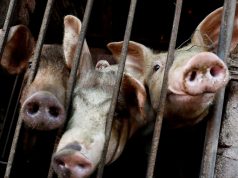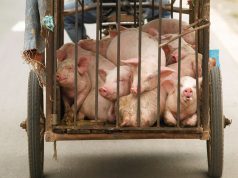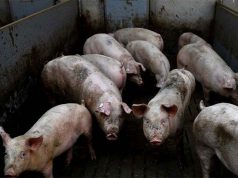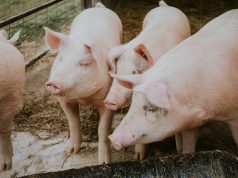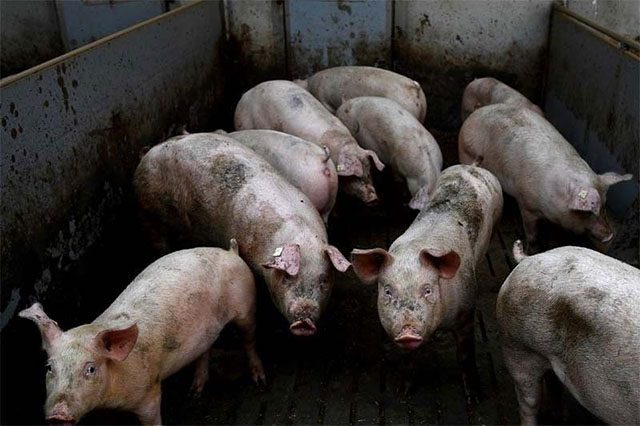
In early February, several meat vendors staged a “pork holiday” and decided not to sell their products as government set a price ceiling on pork and chicken products in major public markets.
President Rodrigo Duterte signed Executive Order 124 or “the imposition of mandated price ceiling on selected pork and chicken products in the National Capital Region” last February 1. This was to take effect for 60 days or two months.
Republic Act 7581 or the Price Act defines price ceiling as the “maximum price at which any basic necessity or prime commodity may be sold to the general public.”
Under this EO, the mandated price ceiling for selected pork and chicken products in NCR are:
Pork
Kasim/Pigue – P270 per kilo
Liempo – P300 per kilo
Chicken
Dressed chicken– P160 per kilo
The Departments of Agriculture, Trade and Industry, the Metropolitan Manila Development Authority and the Metro Manila mayors recommended the price ceiling as the public tried to grappler with the high cost of agricultural products. They hoped the price cap would help Filipinos recover from the economic impact of the COVID-19 restrictions.
Grabe ang mahal ng fish, ng pork…kawawa talaga ang mga tao nowadays. Kung ako I am complaining, sila what are they eating? This government is not acting and helping farms and fishermen, no food security at all.
— LenyTL (@lenytl) February 22, 2021
Bakit kaya walang whole chicken sa grocery kahapon? Lahat cut-up parts na. Tapos ang mahal pa din ng pork kahit may price ceiling. Pati si chicken nahahawa na din.
— Jaypee Sanchez (@jaypeesan) February 15, 2021
READ: Gov’t agencies, LGUs bat for price ceiling on veggies, meat
Max Montenegro, a fellow of the Philippine College of Swine Practitioner (PCSP), said that the prices of pork and poultry products sgot up because of threats posed by the African swine fever outbreak in the country.
Its mortality can reach 100% in ASF-infected pigs with more than 400,000 culled since the viral disease arrived in the country.
The Department of Agriculture said ASF is currently present in 11 regions, 34 provinces, 392 municipalities and over 2,000 barangays nationwide. It incurred P56-billion worth of damage in the Philippine hog industry.
In view of this, the DA and its private partners recently launched “Bantay ASF sa Barangay (BABay ASF).”
“ASF is the worst disease to hit the Philippine swine industry in recent years. Bantay ASF sa Barangay, a multi-stakeholder partnership between the public and private sector and veterinarians, seeks to control the spread of ASF and assist in the repopulation of farms affected by the disease,” Montenegro said in a virtual press conference last February 16.
BABay ASF program kicked off at the Batangas Capitol Grounds on February 11 with Integrated National Swine Production Initiatives for Recovery and Expansion (INSPIRE) or hog repopulation also launched on the same day. The DA allotted a combined budget of P29.6 billion for these two.
Meanwhile, for Northern Mindanao, the DA partnered with the local government units of Misamis Oriental and Iligan as well as the PCSP for BABay ASF to help control the spread of ASF and revive the livelihoods of both backyard and commercial swine farmers.
The program also seeks to “assist in the repopulation of previously infected or identifying financial support facilities for alternative livelihood projects from government or donor agencies for farmers whose lives were disrupted by ASF.”
Montenegro said they plan to achieve this through improved biosecurity, surveillance and monitoring, as well as restocking of swine farms affected by the disease.
He also said ASF surveillance is important as it involves not just monitoring but also risk assessment, mapping and geotagging of all farms in every barangay to determine the risk posed by ASF.
The fellow said these activities would only be effective with the coordination with barangays, swine raisers and feed millers, among others.
Two veterinarians have led training of biosecurity officers, who will be based in the barangays to control the spread of the disease.
Veterinarians Benjie Resma in Misamis Oriental and Dahlia Molo-Valera in Iligan City will continue to oversee the program while the Northern Mindanao Hog Raisers Association and volunteers from human and animal nutrition providers ADM will support program’s activities.
“The government, in its relentless campaign to contain the spread of ASF, needs strong support from the private sector, veterinary professionals, and barangays to help prevent the spread of ASF that shattered the country’s hog industry and mostly affected the livelihood of backyard raisers. Thus, this project Bantay ASF sa Barangay is very significant and very timely, considering that the disease is now widespread in the Philippines,” Valera said.
“We would like to express our heartfelt gratitude to PCSP and its allied partners for considering the Province of Misamis Oriental to be part of the Bantay ASF sa Barangay Program. This program will be of great help to our efforts in protecting our hog industry from ASF,” Resma also said.
Aside from these, the ADM, through its corporate social responsibility arm, ADM cares donated P5 million-worth of assistance for the program to protect the “green zones,” or areas which remain free of ASF, in Mindanao.
“This funding will cover training sessions for volunteers, farmer seminars and procurement of more than 700 Nanogold ASF Test Kits and cPCR test kits,” the provider said.
Montenegro said random testing of hogs per area is necessary to prevent automatic culling and let farms continue their operation amid an outbreak.
Four barangays in Iligan City will serve as the program’s pilot areas. These are barangays Tipanoy, Abono, Dahlipuga, San Roque, and Digkilaan in District 1 and other parts of Misamis Oriental, namely Tagoloan and Manticao.
The program will also be extended, eventually, in areas in Batangas province.




